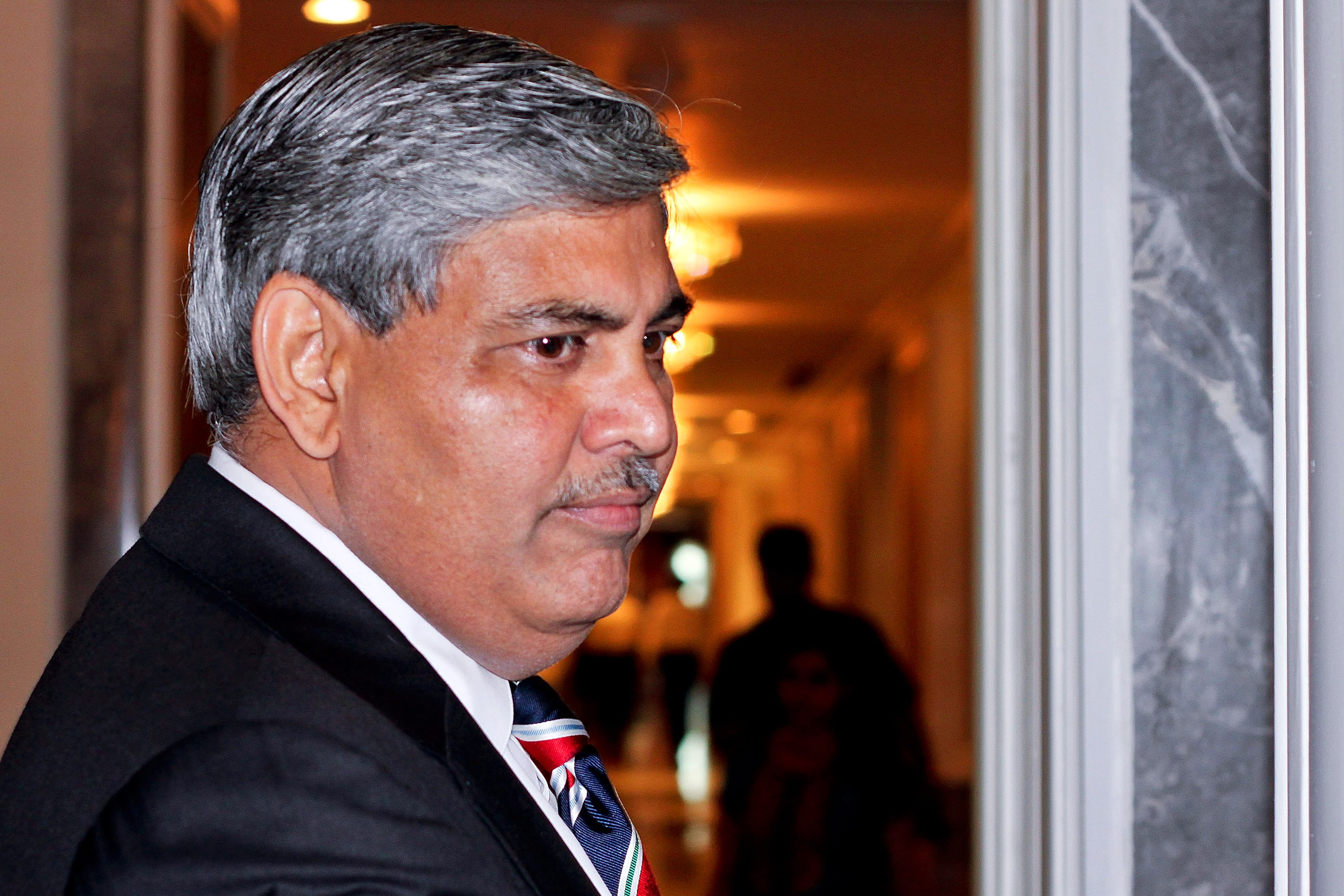Clash of Titans : Why is BCCI at war with ICC ?
It is an understatement to say that the BCCI and the ICC are not the friends they used to be. There is more than just to financial gain which sparked the feud between cricket's most powerful bodies.

The bitterness between the International Cricket Council(ICC) and the Board of Control for Cricket in India (BCCI) is there to witness for all, and it does not look to slow down any time sooner. The war of words over the “board's interests” has reached a whole new level over the past few days, but the behind-the-scenes drama involves not just the differences between the BCCI President Anurag Thakur and the ICC's independent chief Shashank Manohar.
An appointment that was not to be:
Following the death of BCCI President Jagmohan Dalmiya in October 2015, member associations of the BCCI elected Shashank Manohar from Vidarbha Cricket Association unanimously for the post, hoping that all the administrative bodies will see good days. The Lodha Committee appointed by the Supreme Court of India, following the match-fixing scandal in the 2013 IPL, was breathing down their necks, and the BCCI were being constantly questioned about the transparency in their administration. And Manohar, with his experience as the BCCI President between 2008 and 2011, being one of the most accomplished lawyers in India was going to be the board's saviour.
But by May 2016, a mere eight months after being appointed as the BCCI President, it was made clear to everyone in the board that Manohar will be resigning from the post as he was on the verge of being announced as the new independent chief of the International Cricket Council. In a position which allows the chief to act independently of the other member associations' interests and opinions. This meant that bigger heads like the BCCI, Cricket Australia, and the England and Wales Cricket Board(ECB) cannot touch Manohar. This decision to

 © BCCI
© BCCIAvoiding Legal Headaches:
When a friend leaves us bleeding on the road, instead of helping us during an accident, the sense of betrayal is far more painful that the hurt itself. The decision Manohar made by leaving the BCCI was mainly due to the Lodha committee's proposed reforms to restructure the board's administration. The committee, which was headed by former chief justice R.M. Lodha, had proposed several reforms. The committee insisted on smaller boards such as Puducherry be made an associate member and that the Board has to begin to shape the Cricket Players Association and also fund it. Most important of all, the Committee had proposed to debar the BCCI from taking decisions over a course of a year.
In order to challenge these outrageous reforms proposed by the Lodha committee, the BCCI and its member bodies looked up to Manohar to bail them out of the situation. But Manohar, on the other hand, despite possessing a shrewd legal mind, had made it clear to many of his BCCI colleagues and friends that he will not stay for a minute as the BCCI president, the moment the Supreme Court validates these recommendations. By February 2016, when the Supreme Court was set to validate these reforms, Manohar made his moves in the higher echelon so that his route to becoming the ICC's independent President was clear. Anurag Thakur, who was serving as the chief secretary at that time, still looks hurt with this move from Manohar. He recently said, “When the Board (BCCI) needed Manohar as President, he left the Board in
Wallets getting lighter:
The biggest reason apart from the legal battle with the Supreme Court was Manohar's financial decisions that fetched him many enemies within his own country. On the sidelines of the ICC meeting in Dubai in February 2016, Manohar's decision to vote for abolishing the “Big Three” revenue system shocked everyone at the BCCI. The model, which allowed the BCCI, Cricket Australia, and the ECB to have the lion share of the ICC's annual revenues, was taken down as a part of ICC's constitutional change. Manohar had also reportedly agreed to give away 6% of India’s 22% share of ICC revenues during this meeting. This decision was taken by Manohar without any consultation of the board members.
Anurag Thakur also pointed out to this fact in his recent interview, saying, “One needs to understand that when ICC constitution (abolishing Big Three) was changed, Manohar was BCCI president. He should have taken members into confidence. But then he was looking for a position in the establishment.”
This meant that the BCCI was left to bleed when they were already cornered in a legal tussle with the Supreme Court.

 © Getty Images
© Getty ImagesChampions Trophy Budget:
The relationship between the two boards hit an all-time low when, according to reports, the ICC sanctioned a budget of USD 135 million for the Champions Trophy 2017, hosted by the United Kingdom, while only a measly $45 million budget was sanctioned to conduct the World T20 event in India in 2016. The bridges between the two parties were burned down when this decision was taken during a meeting, conducted earlier in August, which did not include the BCCI. The Indian Board’s secretary Ajay Shirke has branded this decision from the ICC to not include the BCCI in the finance committee as “a humiliation” and even issued a threat that India might pull out of the tournament.
It is understandable on the part of the BCCI that they were given a budget which is three times less to conduct a tournament which had 58 matches in 27 days, compared to the Champions Trophy which has only 15 matches to be played in 19 days. But Manohar dismissed all these reports saying that the earmarked budget of 135 million for the Champions Trophy, was not at all true, and the budget for the World T20 tournament in India was $55 million including the production costs. While the real budget is still a mystery, the BCCI is refusing to let go of this issue as they will be the chief contributors to the final budget.
Anurag Thakur angrily questioned the ICC about the issue saying, “That is why we have raised the issue(budget for the Champions Trophy) when the rest kept mum that we want to go through Champions Trophy budget and make a comparison as well. BCCI has raised this because we want every single penny saved. It will be a penny saved for everyone, not just BCCI but all the 105 countries.”
There seems to be no end to this brawl between the sport's biggest governing bodies, while the real issues still remain unresolved. As an average cricket fan, we hope that this ugly power struggle doesn't affect the events on the pitch, and the cricket on the field remains the real goal.

Comments
Sign up or log in to your account to leave comments and reactions
0 Comments